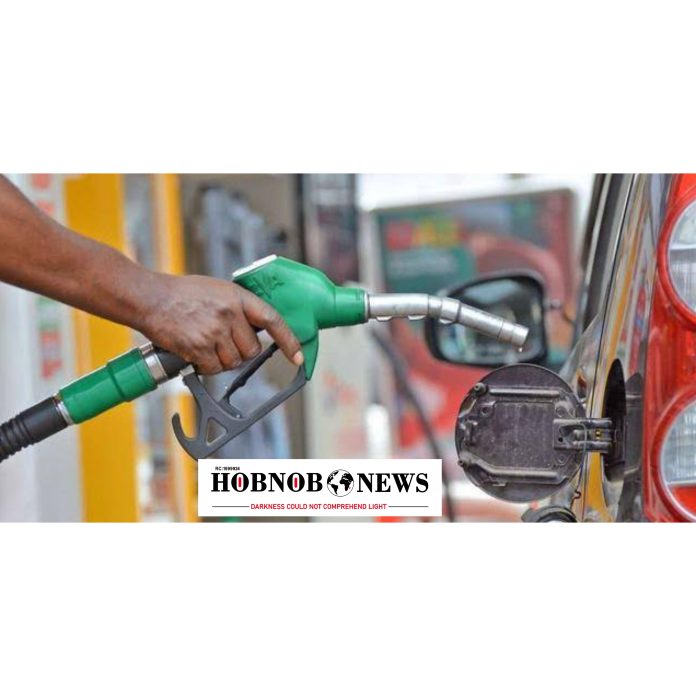The removal of fuel subsidies in Nigeria has led to a sharp increase in borrowing among oil marketers, who have passed the burden onto motorists through higher fuel prices. Financial Vanguard reports that major petroleum marketing companies borrowed over ₦3 trillion in the first nine months of 2024, a staggering 76.5% increase from ₦1.7 trillion during the same period in 2023.
The surge in borrowing is tied to the escalating costs of procuring petroleum products and rising bank interest rates. The Central Bank of Nigeria’s (CBN) Monetary Policy Rate (MPR) rose from 18.75% in 2023 to 27.50% in 2024, significantly increasing the cost of credit. This compelled oil marketers to rely heavily on bank loans to meet procurement needs, despite the high interest rates being a deterrent to many businesses.
As a result, finance costs for these companies skyrocketed, increasing by 78.9% to ₦156.9 billion in the first nine months of 2024, up from ₦116.08 billion in 2023. However, despite these rising costs, oil marketers still recorded impressive profits by transferring these expenses to consumers through increased pump prices.
Profits Soar Amid Rising Costs
The combined Profit Before Tax (PBT) of major oil companies grew by 44.5% to ₦420.8 billion in 2024 from ₦280.8 billion in 2023. Turnover also surged by 57.9% to ₦5.3 trillion, far outpacing the inflation rate of 34.8%—the highest Nigeria has experienced in the past 30 years.
Companies like Oando, Conoil, Eterna Plc, MRS Oil, Total Energies, and Aradel Plc were key players in this trend. Their ability to maintain profit margins, despite rising costs, highlights the inelastic nature of demand for petroleum products in Nigeria.
Breakdown of Borrowing and Financial Performance
Oando Plc led the borrowing spree, increasing its debt by 238% to ₦2.77 trillion in 2024, up from ₦818.3 billion in 2023. Aradel Plc followed with a 55.6% increase in borrowing, while Total Energies saw an 18.9% rise. Interestingly, Conoil reduced its borrowing by 61.7%, and MRS Oil did not borrow at all during this period.
In terms of finance costs, Eterna Plc experienced the largest jump, with a 477.7% increase to ₦5.08 billion from ₦887 million in 2023. Oando also saw a 70.1% rise in finance costs to ₦131.1 billion. Despite these rising costs, profits remained strong across the board.
Aradel Plc led in PBT growth, rising 186% to ₦321.6 billion, while Total Energies saw a 151.8% increase. Even MRS Oil reported an 88.9% boost in PBT to ₦9.37 billion. However, Eterna Plc was an outlier, seeing its PBT fall by 51% to ₦1.67 billion.
Cost of Sales and Turnover Growth
The combined cost of sales for these companies rose by 58.26% to ₦5.15 trillion from ₦3.25 trillion in 2023. Aradel Plc again led the charge with a 231% increase in cost of sales, followed by MRS Oil and Total Energies with 155.6% and 91.1% increases, respectively.
Turnover growth was equally impressive. Aradel Plc saw a 162.7% increase, while MRS Oil and Eterna Plc experienced 144.1% and 89.6% growth, respectively. Oando reported a 35.8% rise in turnover, reaching ₦3.19 trillion in 2024.
Experts Weigh In: Economic Impact and Future Outlook
Industry experts attribute these financial trends to the government’s decision to fully deregulate the downstream oil sector. According to David Adonri, Executive Vice Chairman at Highcap Securities Limited, the surge in profits stems from the ability of oil marketers to pass rising costs onto consumers.
“The elasticity of demand for petroleum products is high, allowing companies to transfer their costs. Despite higher finance and operational costs, their healthy returns suggest strong short-term debt servicing capacity,” Adonri noted.
He also pointed out that while deregulation has stabilized product distribution since the third quarter of 2024, it has come at a significant cost to both businesses and consumers. However, Adonri expressed optimism for 2025, predicting even better returns for oil companies as distribution normalizes and revenue streams stabilize.
Ambrose Omordion, Chief Operating Officer of InvestData Consulting Limited, echoed this sentiment, highlighting that the deregulation has allowed oil marketers to set prices based on their operational costs and profit margins. “The reforms in the oil and gas sector have significantly impacted revenues, and the coming on stream of Dangote Refineries is expected to further reduce product procurement costs, enhancing profitability in 2025,” he said.
Former President of the Chartered Institute of Stockbrokers (CIS), Olatunde Amolegbe, added that deregulation has empowered companies to adjust pump prices relative to their costs, leading to increased profitability despite rising inflation.
The Road Ahead
While the removal of subsidies has spurred profitability in the oil sector, it has also fueled inflation and increased the cost of living for Nigerians. The rise in fuel prices has had a ripple effect across the economy, contributing to the highest inflation rate the country has seen in decades.
Nevertheless, analysts remain optimistic about the sector’s outlook for 2025. With the stabilization of product distribution and potential cost reductions from local sourcing, investors are expecting even greater dividends from oil marketing companies in the coming year.
As Nigeria continues to adjust to the post-subsidy era, the balance between business profitability and consumer affordability remains a critical issue, with both the government and private sector needing to find sustainable solutions for long-term economic stability.

